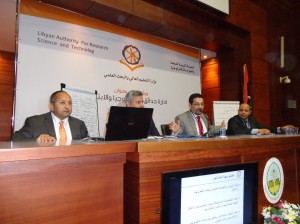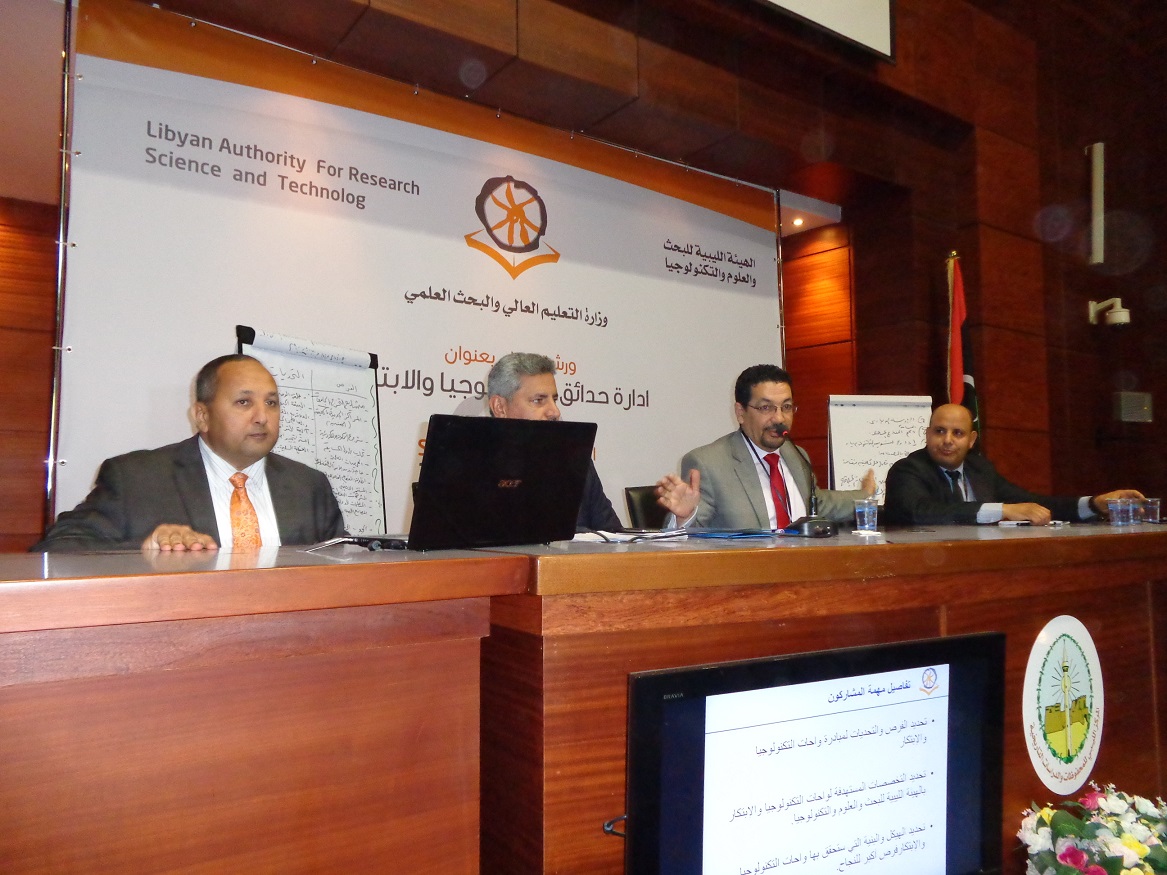By Sami Zaptia.

Tripoli, 23 March 2014:
The Libyan Authority for Research, Science & Technology, part of the Ministry of Higher Education and . . .[restrict]Scientific Research, held a workshop entitled “Science Parks and Technology Transfer” at the Libyan Historical Studies and Archives Centre in Tripoli today.
The aim of the workshop was to launch the newly created Technology and Innovation Parks department and to share and develop a common consensus on the role of this department with local policy makers and national and international experts.
The creation of this department was to help in building a stimulating environment for innovation and technology transfer which is made possible after the 17th February 2011 revolution allowed for the restructuring and refocusing of the vision of the research body, the organizers reported. It is hoped that this would now pave the way towards building a knowledge-based economy.
Nurredine Shamakhy, the Director General of the Libyan Authority for Research, Science & Technology said that “as a result of the freedom offered by the February 17th revolution, there is today a chance for technology parks. There are opportunities for both local private sector and overseas investors in this field,” he stressed.
“We have linked up between the research at universities and the workplace by introducing prizes for the most innovative student end of degree research”, Shamakhy explained, referring to the recently introduced “Libya Innovation Prize”.
He admitted that challenges still exist in this link but that work was being done on mechanisms for better contact and by introducing better incentives and more encouragement for both sides. Financing and modern management were also still a challenge, the Director General admitted.
On choosing the best areas for Libya to concentrate on, Shamakhy suggested that a set of “criteria is created in order to prioritize the sectors that can give the best results. Libya should concentrate on its strengths and needs and these must fit into our overall strategies”, he explained.
He suggested that Libya should “start with the easiest sectors such as ITC, hydrocarbons, solar energy and water desalinization, and then move on to the more difficult ones”. Shamakhy said that the Technology and Innovation Parks department was going to study the top ten examples in the world and then adopt one as the prototype to follow.
He also said that the department was going to take advantage of the extensive Libyan Diaspora, citing former Deputy Prime Minister Mustafa Abushagur, a leading Libyan innovator, a former Libyan Diaspora, and a guest of honour at today’s event, as an example.
Finally, it was stressed that there was the need to embed the culture of private enterprize and move away from the culture of state dependency. Libyan legislation also needed reform so as to encourage investment in innovation and enterprize.
Nurredine Shamakhy, the Director General of the Libyan Authority for Research, Science & Technology, concluded by saying that “freedom is the basis for innovation and that Libya’s challenges needed to be changed into opportunities”. [/restrict]








